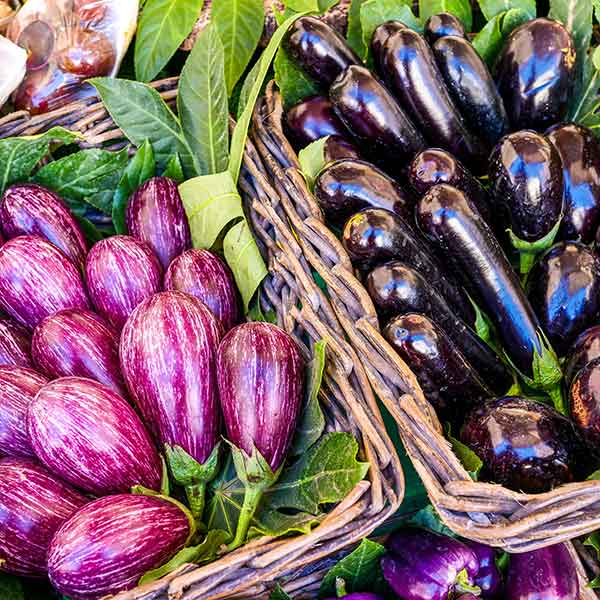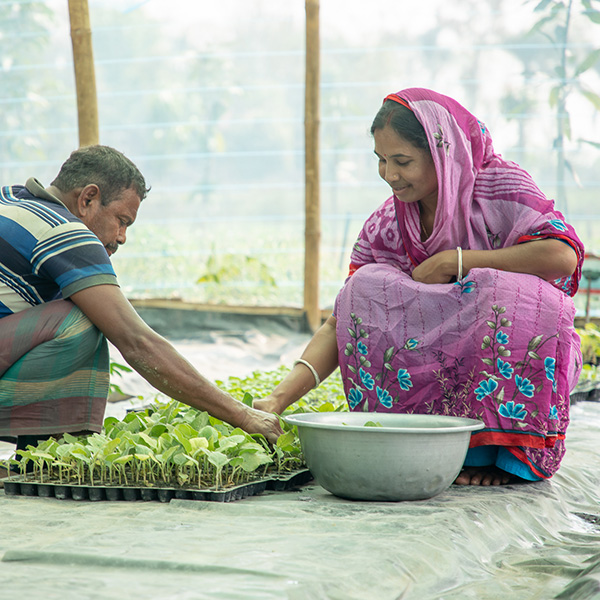Feed the Future has a mission to build a more prosperous, stable and secure world. Through the Insect-Resistant Eggplant Partnership based at Cornell University, we advance that mission by responding to the needs of farmers and collaborating with local partners to develop and deliver improved varieties of Bt eggplant. This proven biotechnology supports farmer prosperity and safeguards the health of our environment.




BUILDING RESILIENCE
Women Empowerment
The Women-led Nursery Enterprise Model is about more than just planting seeds; it’s about cultivating opportunities for women. The initiative directly partners with women entrepreneurs in Bangladesh to provide the essential tools and resources needed for their agricultural businesses to thrive and generate income.
A Decade of Bt Eggplant in Bangladesh
In 2014, Bangladesh became the first nation in South Asia to embrace the commercial cultivation of genetically engineered food crops. Over the past decade, the journey of Bt eggplant in Bangladesh has been one of enhanced food security and economic opportunities for farmers.
Better Health For Farmers
Ansar Ali earned just 11,000 taka – about $130 U.S. dollars – growing traditional eggplant in Bangladesh. After planting Bt eggplant, he more than doubled that amount. It’s a life-changing improvement for a subsistence farmer like Ali.
WHAT THEY'RE SAYING ABOUT BT EGGPLANT
Bt Eggplant by the numbers
A snapshot of our innovation ecosystem.




